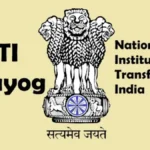Revolutionizing India’s Semiconductor Industry: The Introduction of CHIPIN by Minister Rajeev Chandrasekhar
In recent developments, Minister Rajeev Chandrasekhar has unveiled a groundbreaking initiative named CHIPIN, aimed at transforming India’s semiconductor landscape. This move holds immense significance for aspirants preparing for government exams, especially those targeting positions in teaching, police, banking, railways, defense, and civil services like PSCS to IAS.
The semiconductor industry plays a pivotal role in technological advancements, and India’s foray into this arena marks a momentous stride. Minister Rajeev Chandrasekhar’s CHIPIN initiative promises to revolutionize India’s semiconductor sector, paving the way for self-reliance and technological prowess.
India has traditionally relied on imports for semiconductor components, posing challenges for the nation’s technological independence. CHIPIN addresses this gap by fostering domestic capabilities in semiconductor manufacturing, aligning with the government’s vision of a self-reliant and technologically empowered India.
Aspiring candidates for government exams must stay abreast of these developments, as the CHIPIN initiative is likely to find its place in the exam syllabus. Questions related to India’s technological initiatives, economic policies, and self-reliance strategies may become integral parts of various competitive examinations.

Why this News is Important
1. Transformational Impact on Technology Sector:
Minister Rajeev Chandrasekhar’s CHIPIN initiative is poised to bring about a transformative impact on India’s technology sector, particularly in semiconductor manufacturing.
2. Boosting India’s Self-Reliance:
The introduction of CHIPIN aligns with the government’s vision of self-reliance, reducing dependency on imports and fostering domestic capabilities in semiconductor production.
3. Relevance to Exam Syllabus:
For government exam aspirants, understanding and analyzing initiatives like CHIPIN become crucial, as questions related to technological advancements are increasingly becoming part of the examination syllabus.
Historical Context
The semiconductor industry has been a cornerstone of global technological progress. In the Indian context, historical challenges related to semiconductor manufacturing, coupled with heavy reliance on imports, have underscored the need for a strategic intervention.
Historically, India has faced challenges in establishing a robust semiconductor ecosystem. Previous initiatives aimed at technological self-reliance have laid the groundwork for CHIPIN, emphasizing the nation’s commitment to overcoming these challenges.
5 Key Takeaways from “CHIPIN Initiative”
| Serial Number | Key Takeaway |
|---|---|
| 1. | CHIPIN aims to transform India’s semiconductor landscape. |
| 2. | The initiative focuses on reducing dependence on semiconductor imports. |
| 3. | Aspiring candidates should be aware of CHIPIN’s impact on exam syllabi. |
| 4. | The move aligns with India’s broader vision of technological self-reliance. |
| 5. | Previous challenges in semiconductor manufacturing have paved the way for CHIPIN. |
Important FAQs for Students from this News
1. Q: What is the CHIPIN initiative introduced by Minister Rajeev Chandrasekhar?
A: CHIPIN is a transformative initiative aimed at revolutionizing India’s semiconductor industry, reducing dependency on imports.
2. Q: How does CHIPIN contribute to India’s self-reliance in technology?
A: CHIPIN fosters domestic capabilities in semiconductor manufacturing, aligning with the government’s vision of self-reliance.
3. Q: Why is CHIPIN important for government exam aspirants?
A: Understanding CHIPIN is crucial for aspirants as it may feature in exam syllabi, covering topics related to technological advancements and economic policies.
4. Q: What challenges has India historically faced in the semiconductor industry?
A: India has grappled with challenges in establishing a robust semiconductor ecosystem, motivating initiatives like CHIPIN.
5. Q: How does CHIPIN relate to previous efforts in achieving technological self-reliance?
A: CHIPIN builds upon previous initiatives, showcasing India’s commitment to overcoming historical challenges in semiconductor manufacturing.
Some Important Current Affairs Links

















